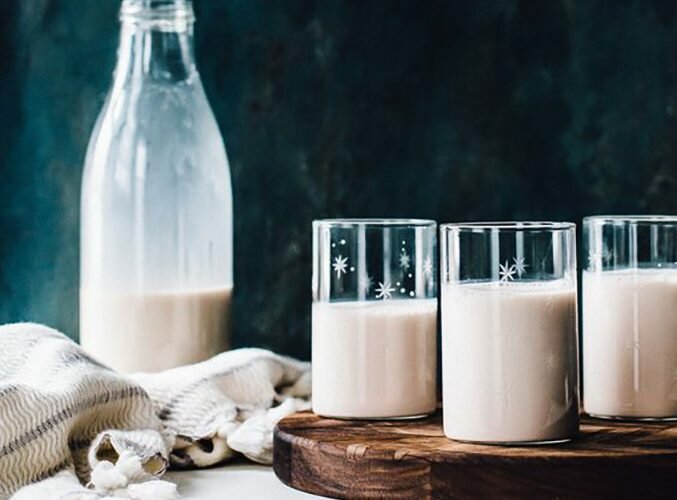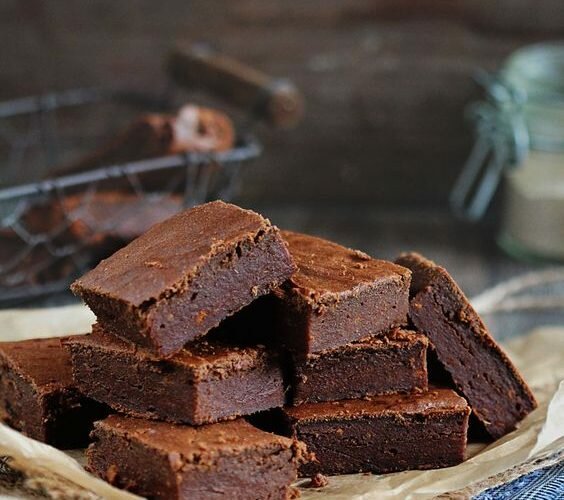I hear ya…this can be a very confusing topic! I regularly get asked about the best types of milk to drink so it seems many of you are pondering over it while you wait for your almond latte or soy chai from the local coffee shop. There are so many options these days from cow’s, almond, soy, coconut, rice, oat and even hemp milk but before you make the switch to any of these there are some important things to keep in mind.
Cow’s milk used to always be the most popular choice but in last few years it has become the newest thing to make the switch to almond or another non-dairy milk instead. If this is you then the first thing to ask yourself is why have you made this switch? If you have a dairy intolerance or don’t consume animal products then that is more than justified. However if you have made the switch just because you heard it’s healthier and have viewed your favourite influencer doing it, then I recommend you keep reading!
Every individual is unique and although there are some situations where cutting out dairy can be beneficial, for most of us, it is a highly nutritious food that can be included in our diet in moderation. Dairy is a fantastic source of protein, calcium, vitamin D and cultures so avoiding dairy unnecessarily is a waste of such good nutrition.
What is most important when choosing any kind of milk is to look at the ingredients. I know many people might base their decision on calories and go for a particular kind of milk because it has fewer calories than others but do your research because it could so happen that the almond milk your local café uses or the one that you think tastes best in your smoothies, is actually full of additives and preservatives and perhaps a full fat cow’s milk would be a more nutritious option (which is far more important than calories). For example, I have listed the ingredients of the two most popular almond milks used in cafe’s in Melbourne at the moment below:
Milk 1: Water, Almonds (3.5%), Sugar, Sunflower Oil, Maltodextrin (From Corn), Acidity Regulators (340, 332), Vegetables Gums (407, 410, 401, 412), Sunflower Lecithin, Sea Salt
Milk 2: Filtered water, ground whole almonds (2.5%), Cold Pressed Sunflower Oil, Corn Maltodextrin, Acidity Regulator (Dipotassium Phosphate Citrate), Stabiliser (Carrageenan, Locust Bean Gum, Sodium Alginate, Guar Gum), Sea Salt, Emulsifier (Sunflower Lecithin), Natural Flavour.
An example of what the ingredients in an almond milk should look like: Filtered Water, Organic Activated Almonds (7%), Organic Brown Rice, Sea Salt, Natural Almond Essence.
This is Pureharvest Unsweetened Activated Almond Milk.
So as you can see the milk you are having in your coffee could be full of ingredients you don’t recognise and be as little as only 2.5% almonds! Depending on the ingredients used in their cow’s milk option, it could be very likely that this would actually be a more nutritious option.
So considering this information how do you know what milk is best? Follow these guidelines below to work out which milks you should be enjoying (remember you don’t always have to have just one kind of milk) but ALWAYS ask to see the ingredients list first (or comment the brands below and I will look them up for you!).
Do you have an intolerance to dairy or do not consume animal products? If yes, avoid cow’s milk. If no, you can enjoy cow’s milk in moderation.
Do you have thyroid issues? If yes, avoid soy milk. If no, you can enjoy soy milk in moderation. Note: A good quality soy milk made from whole soybeans will not mess with your hormones ladies! There are two forms of estrogen receptors, and food that comes from a whole soybean (non GMO, no additives, and very little processing) have a preference for the kind of receptor that is not associated with detrimental hormonal issues.
Do you have almond allergies or intolerances? If yes, avoid almond milk. If no, you can enjoy almond milk in moderation.
Are you strictly gluten-free? If yes, avoid oat milk. If no, you can enjoy oat milk in moderation.
Are you allergic or intolerant to coconut? If yes, avoid coconut milk. If no, you can enjoy coconut milk in moderation.
Do you consume large amounts of milk each day (more than two cups)? If yes, reduce your intake or mix up which milk you are having to ensure variety of nutrients.
*What is moderation when it comes to milk? A maximum of one cup of milk per day is my recommendation as a general guide. However, like all things in our diet that aren’t vegetables, I suggest trying not to have the same thing every single day. Therefore try having some days where you don’t have milk or try switching what milk you have. This ensures a good variety of nutrients in your diet.
The typical ingredients in any dairy milk should be: organic full cream milk
The typical ingredients in any nondairy milk should be water, the main ingredient (ie. almonds/coconut/rice/etc – as a high % which means more nutrition) and maybe 1-2 other wholefood ingredients plus oil and salt.
Article by Steph Wearne
Steph Wearne is a Registered Nutritionist and holistic foodie whose recipes are a revelation for anyone wanting to feed their body good food whilst keeping it easy and seriously delicious! She owns a training and nutrition studio in Melbourne, has a blog full of amazing recipes, creates menus for popular cafes, and has developed life-changing programs and recipe collections to bring balance and happiness back to our food and bodies. She also loves to downward dog, dance to 90’s music, and eat chocolate in her spare time…dark and homemade of course!
W: www.bodygoodfood.com.au
FB: /nutritioniststephwearne
I: Nutritionist_stephwearne






